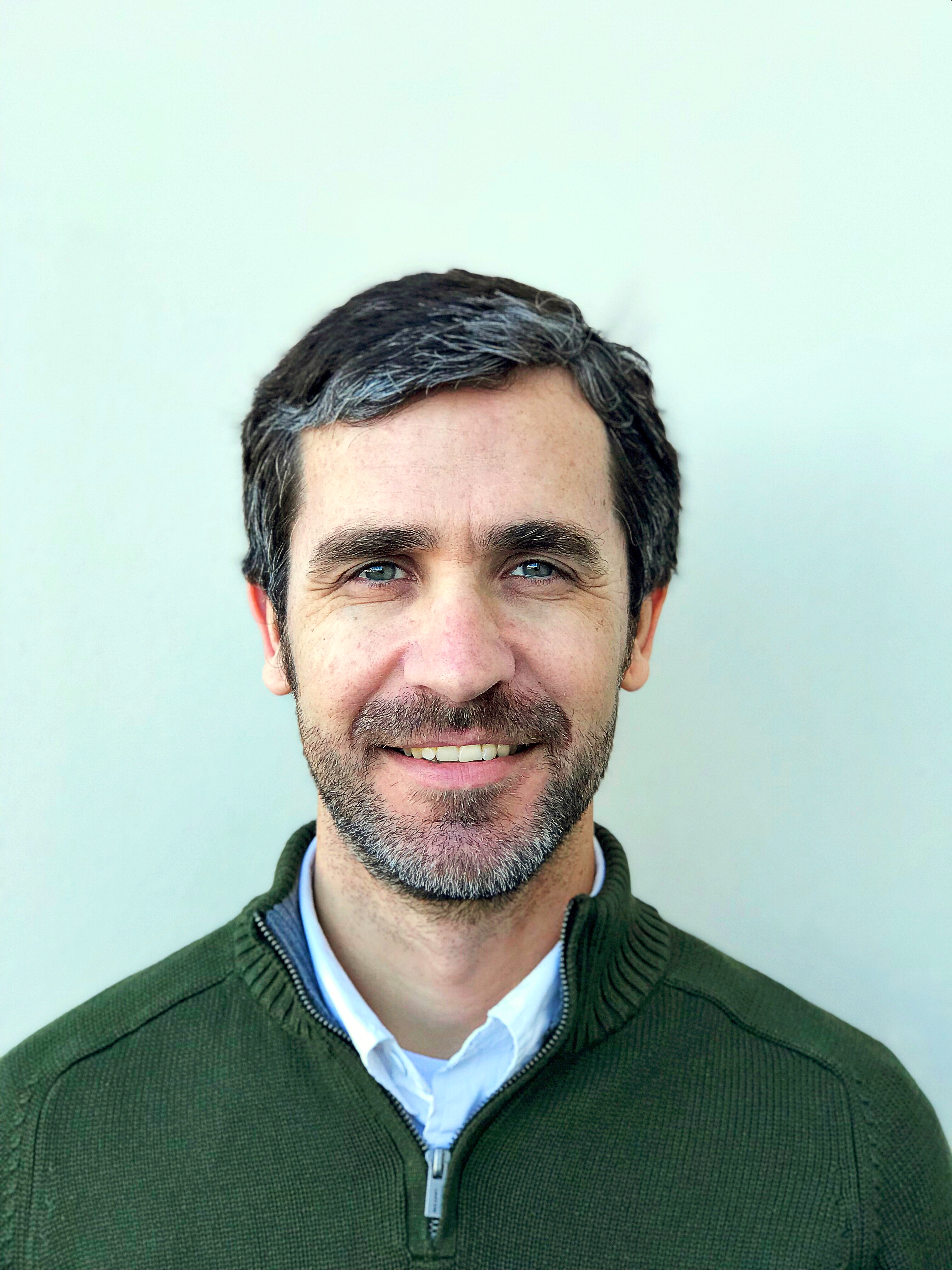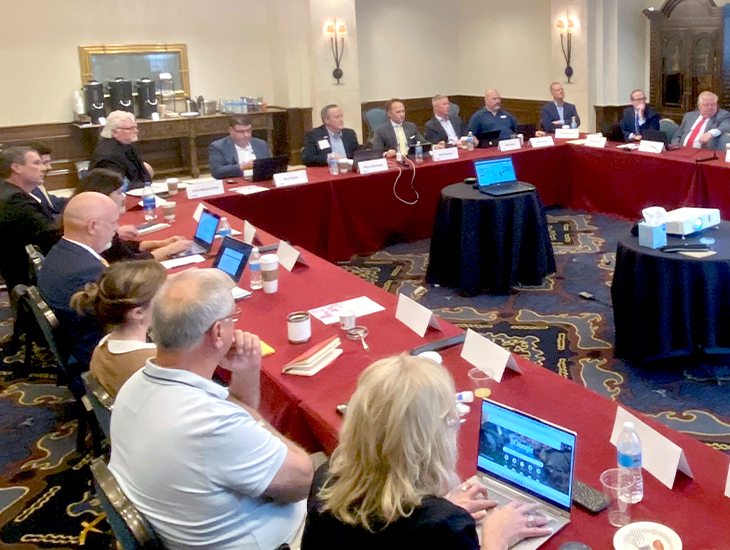Just like for the Emerging Water Technology Symposium (EWTS), San Antonio provided the first opportunity for the Plumbing Industry Leadership Coalition (PILC) to meet in person since 2018.
PILC’s annual meetings typically coincide with the EWTS in even years, but the 2020 meeting was held virtually due to the COVID-19 pandemic.
Formed in 2012, the coalition provides a forum for the exchange of information through the leadership of U.S.-based plumbing industry associations representing manufacturers, plumbing systems, certification bodies, and stakeholders having an influence on policy. The goal is to seek common ground on plumbing industry issues and then to address and promote the issues as a unified coalition.
PILC is tri-chaired by the American Society of Plumbing Engineers (ASPE), IAPMO and Plumbing Manufacturers International (PMI).
The following organizations were represented at the meeting: the American Rainwater Catchment Systems Association (ARCSA), the American Supply Association (ASA), ASPE, the Alliance for Water Efficiency (AWE), IAPMO, the International Code Council (ICC), NSF International, the Plumbing-Heating-Cooling Contractors
Association (PHCC), PMI, the Plastic Pipe and Fittings Association (PPFA), the United Association of Journeymen and Apprentices of the Plumbing, Pipefitting Industry of the United States and Canada (UA) and the Water Quality Association (WQA), as well as John Mesenbrink from Mechanical Hub and Steven Spaulding from Contractor magazines.
After PMI CEO and Executive Director Kerry Stackpole and IAPMO Executive Vice President of Government Relations Dain Hansen welcomed attendees to the meeting, the group discussed a range of topics including how to generate more participation and renew interest in the skills trades; industry responses to the COVID-19 pandemic; industry efforts on diversity, equity and inclusion; sanitary and water treatment initiatives on point-of-use and point-of-entry filtration in disadvantaged communities; U.S.-Canada harmonization activities and recommendations; and the implementation of the Infrastructure Investment and Jobs Act (IIJA).
Natascha Milesi-Ferretti, a mechanical engineer with the National Institute of Standards and Technology (NIST), then delivered an update on NIST’s plumbing research efforts, and Hansen shared a government relations update.
Hansen said PILC meetings present the perfect opportunity to anticipate and plan for issues the industry faces.
“There is no better place on the planet to understand our industry’s challenges and the vast energy and ideas in the chase for solutions, than the Plumbing Industry Leadership Coalition meeting,” Hansen said. “This year’s meeting showcased the strength of our collaboration and a commitment among industry groups to share expertise key to finding solutions to some mighty tough problems.”
Stackpole said the group of executives from across the plumbing industry had a wide variety of pressing issues to address at this year’s meeting.
“The Plumbing Industry Research Coalition has not met in person since before the global pandemic,” he said. “This executive-level coalition, the industry’s brain trust, comes together selflessly to discuss matters of critical importance to the entire industry, and this past meeting was no exception. With our industry being deemed ‘essential’ by federal and state governments since the onset of the pandemic, the industry executives had no shortage of topics to discuss while we were together in San Antonio.
“This year’s meeting really illuminated the diversity and outstanding work being done to recruit skilled tradespeople to the industry, the broad collaboration on codes and standards, and the efforts to leverage the exciting new academic research and learnings focused on delivering world-class sanitation and safe, clean drinking water to our world,” Stackpole continued. “I found the energy and ideas shared around the table to be truly inspired.”
IAPMO CEO Dave Viola and ASPE Executive Director/CEO Billy Smith both stressed the importance of having leaders from throughout the water sector gather to address important issues facing the industry.
“The annual PILC meeting presents a golden opportunity to bring together a collection of experts representing all facets of the industry and to workshop real-time solutions to the industry’s biggest challenges,” Viola said.
Smith referred to a topic about which he recently wrote in a monthly ‘From the Executive’s Desk’ column for ASPE Pipeline.
“We forget at times just what our industry has dealt with and truly missed over the past couple of years due to the pandemic,” he said. “For those of us who have been around since the beginning of PILC, having the opportunity to once again be together face-to-face was like medicine for the soul, if you will.
“To once again provide an in-person PILC meeting for associations representing manufacturers, engineers and design professionals, labor, contractors, distributors and other stakeholders is crucial to our continued goals of ensuring the protection and sustainability of the world’s resources as we collaboratively strive to protect the health and safety of the public on a global basis. At ASPE, we are proud to continue our respective efforts as a co-convener of PILC as we now plan for the 2023 event.”
PILC’s 2023 annual meeting is scheduled to take place in Washington, D.C.

Mike Flenniken
Mike Flenniken is a staff writer, Marketing and Communications, for IAPMO. Prior to joining IAPMO in 2010, Flenniken worked in public relations for a group of Southern California hospitals and as a journalist in writing and editing capacities for various Southern California daily newspapers.
Last modified: August 12, 2022

